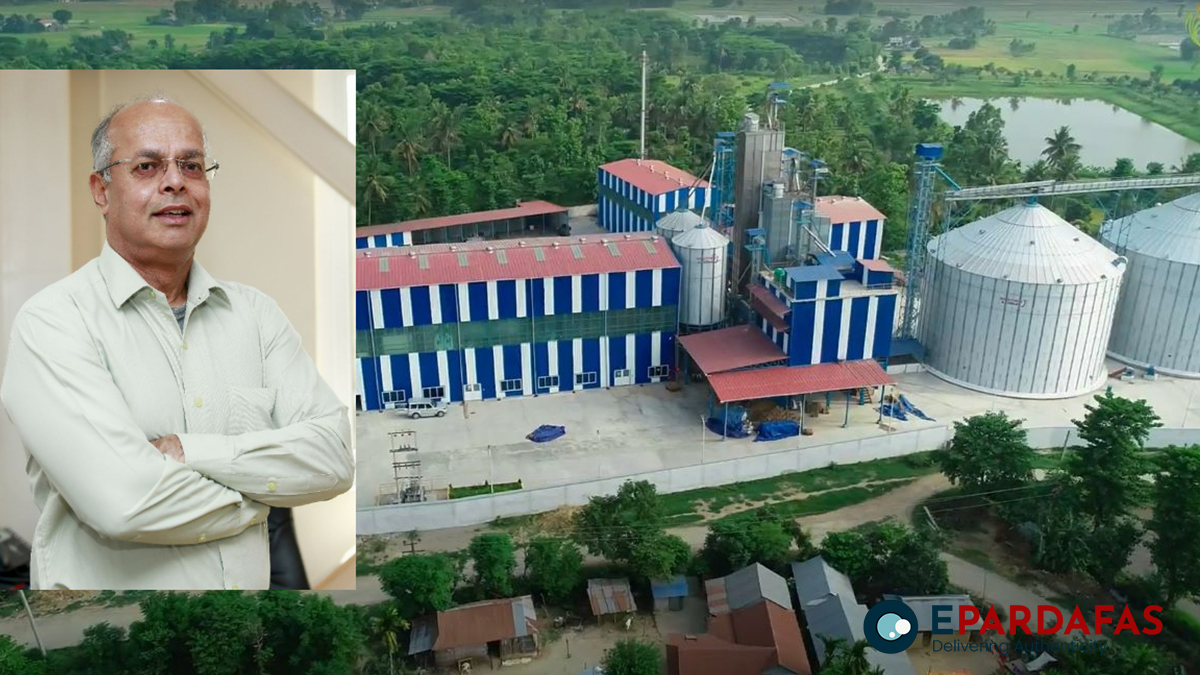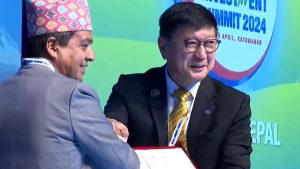
Nepali Businessman Takes Up Agriculture to Tackle Food Crisis and Ensure Self-Sufficiency in Rice Production

As the world faces a significant decrease in paddy rice production, Ban Ki-moon, the former Secretary-General of the United Nations, has urged consumers to break the habit of exclusively consuming rice and diversify their diets with other food items. With global hunger affecting 78 million people and about one-third of food production declining, the issue of food security has become a growing concern, exacerbated by geopolitical and economic disruptions worldwide.
In light of the looming food crisis and the need for Nepal to increase its own rice production, Birendra Bahadur Basnet, a successful entrepreneur in the airline industry, has decided to venture into agriculture. The managing director of Buddh Air, a prominent private airline company, has invested over 500 million rupees to establish the ‘Arju Rice Mill’ in Dangihat, Morang.
With a vision to transform subsistence-oriented rice farming into a self-sufficient model, Basnet aims to bridge the gap between Nepali farmers and consumers. By offering a minimum support price for rice to farmers and delivering locally produced rice to consumers within the country and abroad, he hopes to contribute to solving the growing food crisis. Basnet’s goal is to impact more than 20,000 farmers positively through this initiative.
While the fertile land for rice production is decreasing and agricultural labor is migrating abroad, causing a reduction in agricultural output and increased dependence on imports, Basnet believes that making the current subsistence agricultural system business-oriented is essential. He emphasizes that buying and consuming Nepali rice is crucial to reduce the threat of a food crisis, and his long-term plan includes industrializing subsistence agriculture.
Nepal’s diverse geography allows rice cultivation to take place from as low as 60 meters above sea level in the Terai region to as high as 3,500 meters in Chumchaur. Despite agriculture contributing approximately 24.1 percent to the country’s total domestic production, the current rice production of 54.86 lakh metric tons falls short of the required 10 to 12 million metric tons.
Basnet underscores the need for Nepal to prioritize agriculture and become self-sufficient in food, particularly in rice production. He believes that the global concern about an impending food crisis due to climate change, which is affecting paddy production and causing unseasonal rains.
Operating a state-of-the-art rice mill, Basnet’s efforts to ensure self-sufficiency in rice production and tackle the rice crisis in Nepal have proved beneficial to both farmers and consumers. While India’s decision to ban rice exports has affected global rice prices, the locally produced rice remains unaffected, providing a stable supply to the market.
Despite challenges in market management, Basnet remains committed to his vision of making Nepal a self-reliant nation in terms of food security. By promoting a business-oriented approach to agriculture, he hopes to pave the way for a sustainable future and alleviate food insecurity in the country.














Comments